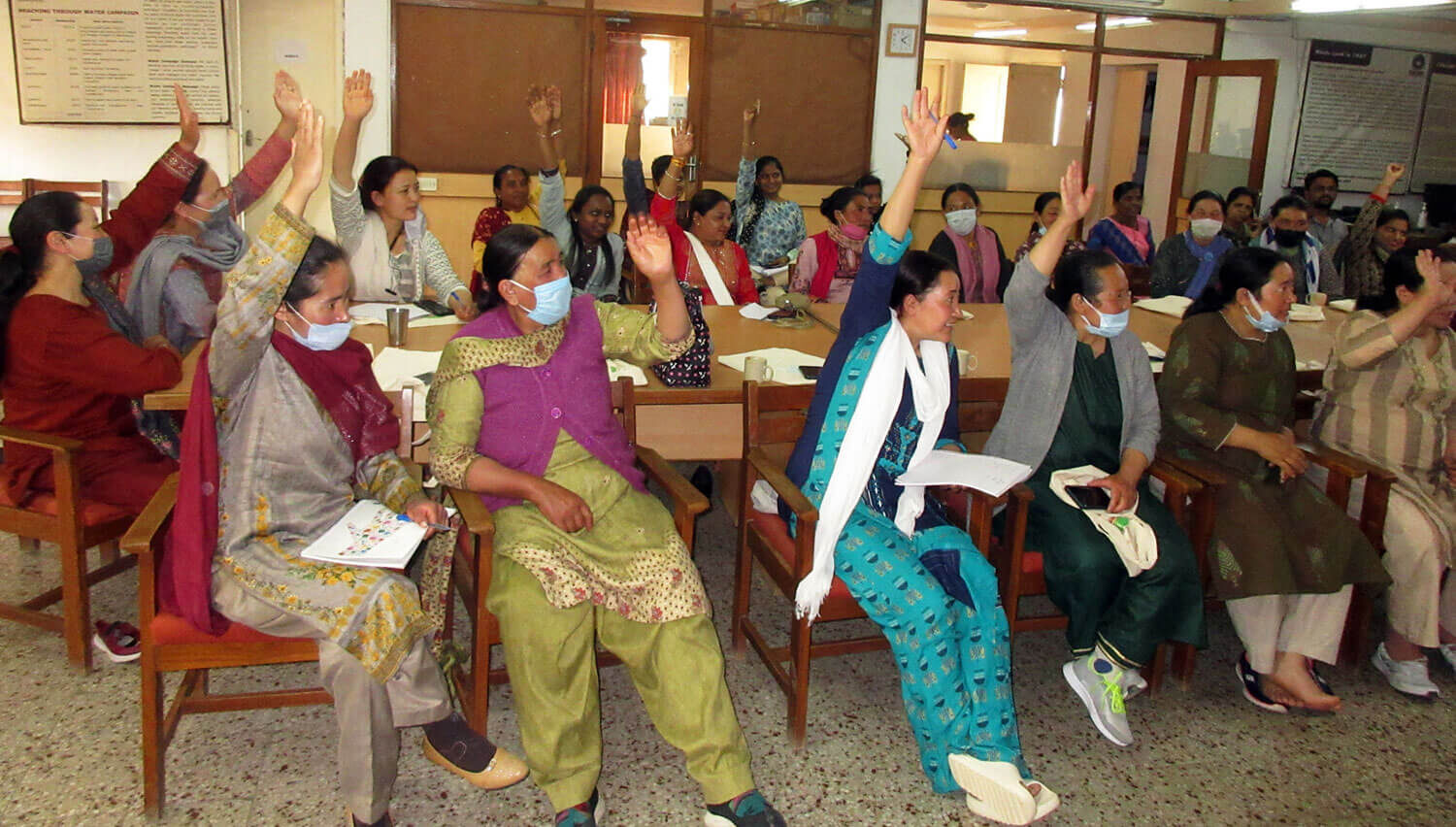
Sometimes, the insights about a particular crisis that are conspicuous by their absence assume greater importance than the insights which are apparent and articulated. This has been true for the COVID-19 pandemic as well.
“The COVID-19 pandemic has offered us a mirror to see what we are not, who we are not, and where we are not. It has shown us less about our presence and more about our absence. And this absence across locations, communities, economic sectors, and political wills, and activities is astounding.,” said Mr. Mihir R. Bhatt, Director, All India Disaster Mitigation Institute India and Advisor of the Gender Responsive Resilience in Policy in Practice (GRRIPP), South Asia Region.
A virtual roundtable to identify and deliberate upon the missing insights on the COVID-19 Pandemic through understanding the intersectionality of risk and resilience in pandemic response and preparedness wished to contribute to the United Nations General Assembly was held on September 24th 2021.
Professor Mahbuba Nasreen, PhD, Pro-Vice-Chancelor, Bangladesh Open Univerisity & former Director and Professor of the Institute of Disaster Management and Vulnerability Studies (IDMVS), University of Dhaka, Bangladesh and regional lead of GRRIPP presented the Keynote paper in the roundtable.
Let us enlist some critical insights on COVID-19 and the intersectionality of risk and resilience from South Asia to prevent and prepare for possible successive pandemic waves.
First, women remain one of the most marginalized sections of our society. The COVID-19 Pandemic has highlighted the vulnerabilities of many groups, such as transgenders, aged, disabled, ethnic, and religious minorities, including people living far away from urban centers in isolated areas. Their level of preparedness and experiences of facing the Pandemic is very different from the rest of society. In her keynote address, Dr. Mahbuba Nasreen, spoke about intersectionality and gender in the COVID-19 Pandemic. From her leadership in GRRIPP in South Asia, she highlighted that Covid-19 induced unemployment and poverty have resulted in a rise of domestic violence globally and child marriages within the South Asian region including Bangladesh. The Pandemic has widened the equality gap between men and women. She has pointed out that pre-existing health conditions, social behavior, norms, and gender inequalities embedded in various sectors, compel to scrutinize Covid-19 impacts through gender and intersectionality lens. Even in vaccination initiatives women are left behind.
Second, a systemic risk such as COVID-19 Pandemic requires a policy mechanism that facilitates ‘systemic risk governance.’ However, there is a need to balance addressing the threat to safety and protecting people’s fundamental rights by humanizing the politics of derogation of human rights. It could be achieved, but it requires contextualization and localization of prevention, preparedness, response, and recovery mechanisms, which could be challenging on the policy front. Prof. Dilanthi Amaratunga, Head of Disaster Risk Reduction and Management, Global Disaster Resilience Centre, University of Huddersfield, UK, pointed out some key policy challenges associated with the COVID-19 pandemic governance. She shared an example from Sri Lanka, where preparedness planning for the Southwest monsoon had to be configured to suit the COVID-19 pandemic situation. Addressing such challenges calls for a pandemic governance approach that strives to build a strong governance relationship between the state, civil society, and citizens.
Third, climate change exacerbates the existing vulnerabilities of women in the region, especially those engaged in agriculture and allied sectors. Ms. Geeta Bhatrai Bastakoti, Gender, Social and Climate Change Adaptation Specialist, Community of Evaluators, Nepal, shared gender and climate change perspectives in the light of the Pandemic in Nepal. She shared that most of the population in Nepal relies mainly on agriculture, and the share of female workers in agriculture is enormous. However, the participation of women in other sectors such as industries, finance, and tourism is relatively small compared to men. Thus, when there is a climate-induced crisis such as droughts and floods, it immediately affects the lives and livelihoods of the women. These shocks create an additional burden on women. She reported a three percent rise in domestic violence against women during the Pandemic in Nepal because of the less available income options due to shut down and other economic activities.
The roundtable also discussed issues such as vaccination and compensation needs of LGBTQ (lesbian, gay, bisexual, transgender, and queer), the need for a comprehensive social safety net, accountability and intersectionality, and ensuring food security during the times of Pandemic.
Dr. Amarendra Khatua, Former Secretary, Government of India, Ministry of External Affairs, New Delhi, India, summarized the discussions and highlighted the following takeaway.
As a way ahead, it is decided to focus next roundtables on the intersectionality of urban challenge, displacement, casual labour, and farmers.
This blog is written by Mihir R. Bhatt, All India Disaster Mitigation Institute, India; and co-author by Professor Mahbuba Nasreen, University of Dhaka, Bangladesh; Prof. Dilanthi Amaratunga, University of Huddersfield, UK; Geeta Bhatrai Bastakoti, Community of Evaluators, Nepal; and Dr. Amarendra Khatua, Former Secretary, Government of India.